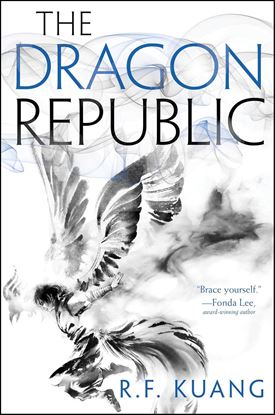

EVERY SUMMER AFTER (DELUXE)
They say you can never go home again, and for Persephone Fraser, ever since she made the biggest mistake of her life a decade ago, that has felt too true. Instead of glittering summers on the lakeshore of her childhood, she spends them in a stylish apartment in the city, going out with friends, and keeping everyone a safe distance from her heart.
Until she receives the call that sends her racing back to Barry’s Bay and into the orbit of Sam Florek—the man she never thought she’d have to live without.
For six summers, through hazy afternoons on the water and warm summer nights working in his family’s restaurant and curling up together with books—medical textbooks for him and work-in-progress horror short stories for her—Percy and Sam had been inseparable. Eventually that friendship turned into something breathtakingly more, before it fell spectacularly apart.
When Percy returns to the lake for Sam’s mother’s funeral, their connection is as undeniable as it had always been. But until Percy can confront the decisions she made and the years she’s spent punishing herself for them, they’ll never know whether their love might be bigger than the biggest mistakes of their past.
2,300
THE HOBBIT COLLECTOR'S EDITION
Bilbo Baggins is a hobbit who enjoys a comfortable, unambitious life, rarely travelling further than the pantry of his hobbit-hole in Bag End.
But his contentment is disturbed when the wizard, Gandalf, and a company of thirteen dwarves arrive on his doorstep one day to whisk him away on an unexpected journey “there and back again.” They have a plot to raid the treasure hoard of Smaug the Magnificent, a large and very dangerous dragon. . .
2,250
ARCANA ACADEMY
Clara Graysword has survived the underworld of Eclipse City through thievery, luck, and a whole lot of illegal magic. After a job gone awry, Clara is sentenced to a lifetime in prison for inking tarot cards—a rare power reserved for practitioners at the elite Arcana Academy.
Just when it seems her luck has run dry, the academy’s enigmatic headmaster, Prince Kaelis, offers her an escape—for a price. Kaelis believes that Clara is the perfect tool to help him steal a tarot card from the king and use it to re-create an all-powerful card long lost to time.
In order to conceal her identity and keep her close, Kaelis brings Clara to Arcana Academy, introducing her as the newest first-year student and his bride-to-be.
Thrust into a world of arcane magic and royal intrigue, where one misstep will send her back to prison or worse, Clara finds that the prince she swore to hate may not be what he seems. But can she risk giving him power over the world—and her heart? Or will she take it for herself?
2,200
THE POPPY WAR (1) (HC)
When Rin aced the Keju—the Empire-wide test to find the most talented youth to learn at the Academies—it was a shock to everyone: to the test officials, who couldn’t believe a war orphan from Rooster Province could pass without cheating; to Rin’s guardians, who believed they’d finally be able to marry her off and further their criminal enterprise; and to Rin herself, who realized she was finally free of the servitude and despair that had made up her daily existence. That she got into Sinegard—the most elite military school in Nikan—was even more surprising.
But surprises aren’t always good.
Because being a dark-skinned peasant girl from the south is not an easy thing at Sinegard. Targeted from the outset by rival classmates for her color, poverty, and gender, Rin discovers she possesses a lethal, unearthly power—an aptitude for the nearly-mythical art of shamanism. Exploring the depths of her gift with the help of a seemingly insane teacher and psychoactive substances, Rin learns that gods long thought dead are very much alive—and that mastering control over those powers could mean more than just surviving school.
1,995
WE ARE ALL GUILTY HERE
Until the night of the fireworks. When two teenage girls vanish, and the town ignites.
For Officer Emmy Clifton, it’s personal. She turned away when her best friend's daughter needed help—and now she must bring her home.
But as Emmy combs through the puzzle the girls left behind, she realizes she never really knew them. Nobody did.
Every teenage girl has secrets. But who would kill for them? And what else is the town hiding?
1,995
THE DRAGON REPUBLIC (2) (HC)
The war is over.
The war has just begun.
Three times throughout its history, Nikan has fought for its survival in the bloody Poppy Wars. Though the third battle has just ended, shaman and warrior Rin cannot forget the atrocity she committed to save her people. Now she is on the run from her guilt, the opium addiction that holds her like a vice, and the murderous commands of the fiery Phoenix—the vengeful god who has blessed Rin with her fearsome power.
Though she does not want to live, she refuses to die until she avenges the traitorous Empress who betrayed Rin’s homeland to its enemies. Her only hope is to join forces with the powerful Dragon Warlord, who plots to conquer Nikan, unseat the Empress, and create a new republic.
But neither the Empress nor the Dragon Warlord are what they seem. The more Rin witnesses, the more she fears her love for Nikan will force her to use the Phoenix’s deadly power once more.
Because there is nothing Rin won’t sacrifice to save her country . . . and exact her vengeance.
1,995













